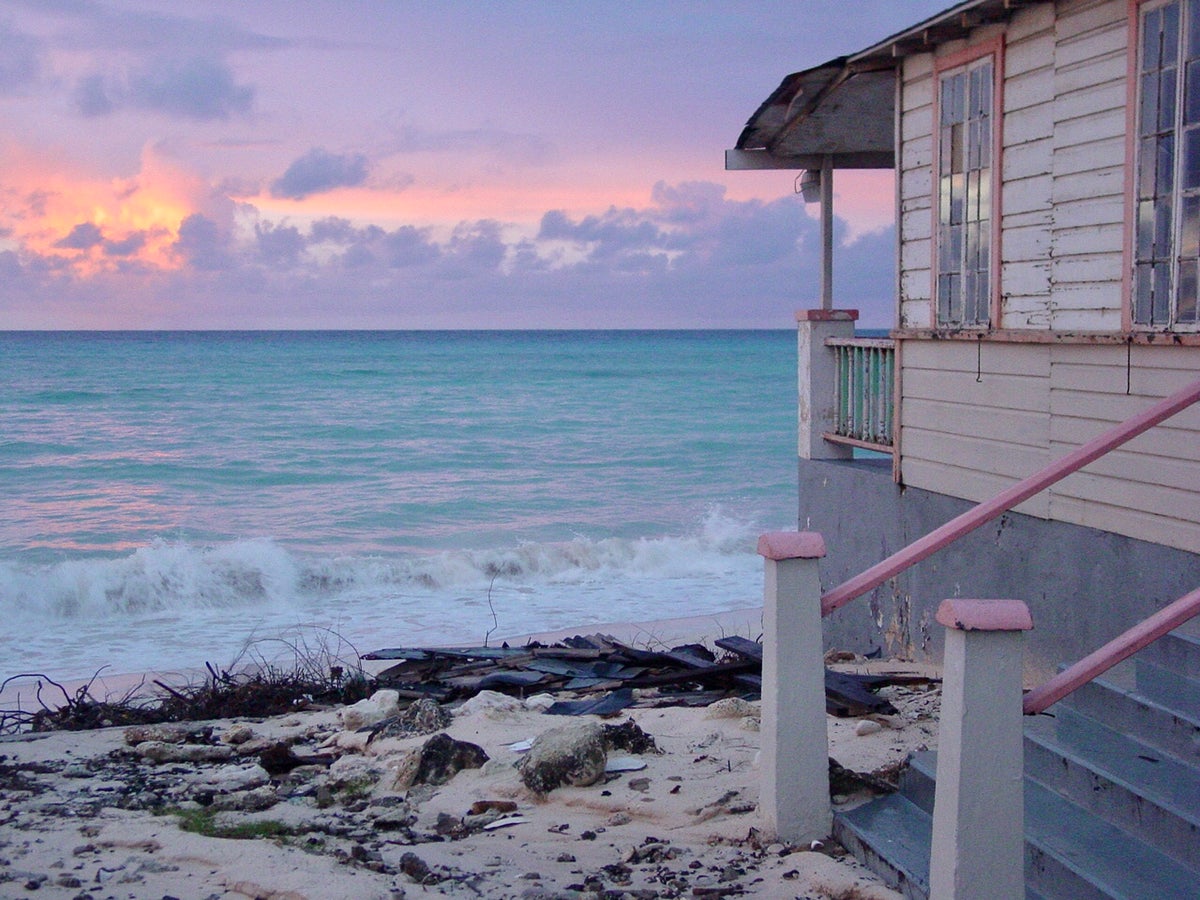
Just how late was that flight? Maria recently flew from Birmingham to Barbados with Tui. But, she says, the start of the holiday was frustrating: “The flight was due to depart at 10.15am but we took off at 1.50pm – three hours and 35 minutes late. I put in a claim for the delay under air passengers’ rights rules but it was refused. The airline insisted it was only two hours and 56 minutes late, therefore missing payment by four minutes. How do I pursue my claim?”
Using Flightradar24, I checked back through all the flights on the route and found Maria’s on 21 January. Tui flight BY830 was due to leave, as Maria says, at 10.15am, and to arrive at Grantley Adams airport in Barbados at 3pm on the dot.
The definition of “departure time” is when the aircraft starts moving (usually backwards, pushed away from the stand by a tug). According to Flightradar24’s records, the Boeing 787 pushed back from the stand at 1.43pm. Add in a short seven-minute taxi time, and that aligns with Maria’s record of taking off at 1.50pm: three hours, 28 minutes behind schedule.
This delay, however, is irrelevant from the point of view of compensation. The measure is the arrival time – specifically, the moment a door is opened after the aircraft reaches the stand at the destination airport.
Flightradar24 concurs with Tui that flight BY830 reached the stand at 5.56pm. At this point, I speculate, the ground crew will have been ready and waiting with the stairs or airbridge, and it probably took significantly less than four minutes to get that first door open. The staff would have been encouraged to be as swift as safely possible, given the looming prospect of a three-hour delay.
By a hair’s breadth, the hundreds of passengers on board were denied the hundreds of pounds that would have been due to each of them (assuming the cause of the delay was within Tui’s control). Had other traffic taking off or landing caused the flight to hold, the passengers would all have won the aviation lottery. But as it was, the pilot flying swung around the southwest of the island and went straight in, saving his or her company a small fortune.
I am not surprised that the aircraft made up time across the Atlantic. I have been on similarly delayed flights where the captain effectively decides to put his or her foot down to get in ahead of that expensive deadline. On oceanic crossings, pilots have some leeway about how fast they fly. By burning extra fuel, they can arrive sooner. Checking back, the four BY830 flights before Maria’s all spent longer in the air. (They were all late, too, but less than an hour behind schedule.)
European air passengers’ rights rules are ridiculous in many ways, including incentivising airlines to pump out more emissions in the way that Maria’s plane did. For flights over 3,500km (Barbados is almost twice as far), you get nothing for a delay of under three hours; £260 for up to three hours 59 minutes; and £520 for anything more, whether the delay was four or 24 hours.
Even sillier are the stipulations on the “duty of care” at the departure airport when a flight is late. The time by which an airline is obliged to provide you with refreshments depends on how far you are flying. For trips of up to 1,500km, they must provide them for a delay of at least two hours. Flying 1,500-3,500km? It’s three hours. But passengers heading further than 3,500km must face a delay of at least four hours before they qualify.
In the mists of time, someone at the European Commission in Brussels must have decided: “They’re going further, so therefore they will be happy to wait twice as long without a coffee and a snack.” No one called them out, and the UK copied and pasted European air passengers’ rights rules after Brexit, pausing only to convert euro payments to sterling.
I shall highlight Maria’s experience to the Department for Transport in the hope that the rules for international flights beyond the European Union might be rewritten: a rare opportunity to extract a benefit from Brexit.







